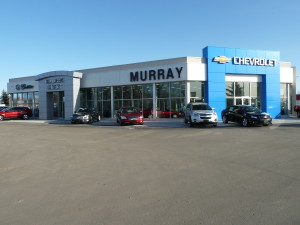By Alysha Webb, Editor and Publisher
Succession is an issue not just with ownership of an entire group, but also with management within the group. Not having enough managers can slow a group’s growth down, and finding good managers that fit into a group’s culture can be tough.
Canada’s Murray Auto Group develops managers with an internal program that includes lending funds to help them buy an interest in a store and making sure the location is a good fit. As a result, the Group has grown steadily for many years.
The Group’s CFO, Arthur Fast, calls the approach “strategic generosity.”
“Our modus operandi is if you are a bright young person and you want to run a dealership then we would be delighted to have you join us. We will find you a place in one of our existing stores, train you, and give you an opportunity to develop your skills.”
”When you are ready to run a store, we will find one for you, and we will be your partner,” he told Automotive Buy Sell Report.
The privately-owned Group, based in the province of Manitoba, has around 30 stores among its 13 franchises. In 2014 it sold 11,000 new and 8,000 used units.
It has added one or two stores almost annually for many years. The Group doesn’t have to look far to find managers for those stores who are well-versed in the Murray business philosophy.
“The usual situation is we have two to three people who have been working for us for some time [and] they are ready” to become General Managers, said Fast.
In the Murray Group, General Managers are given a lot of freedom to run their stores. Fast said he is the only employee at the head office “so there aren’t a whole bunch of people looking over the General Manager’s shoulder.”
That approach works well because “we know them, they know us, and they have similar values and a consistent approach to the business.”
Making sure the store is the right fit for the candidate is an important consideration. Canada’s population is concentrated in a few big cities. Small towns in Canada can be far apart and lacking in some amenities. Murray has dealerships in both types of locations. But not all locations are right for all candidates or their families, so “the right fit is important” said Fast.
Once the right store is identified, Murray will lend the candidate the money to buy an interest in the store if he or she needs it. Having money to buy the store is not a requirement to be a General Manager, said Fast. The only requirement is proven talent and a well-developed set of skills. The practice of lending candidates money may sound generous, “but it is a win/win arrangement that comes back to us in spades,” he said.
Having a well-tested, successful program to development management talent has also helped Murray in its relationship with the auto manufacturers. Not only does it have a good track record with choosing managers and a fairly deep pool from which to choose new managers, but there is never a question of the candidate having the money to buy the store because Murray will lend that capital.
“With us, it is very clean and we never have a problem obtaining approval from the manufacturer when we buy a store” said Fast.
An eclectic approach to finding acquisition opportunities
Murray Auto Group was founded in Manitoba in 1926 by Andy Murray as a single location selling General Motors brand cars. For many years, the Group didn’t have to look for acquisitions, said Fast.
Clair Murray took over from his father in 1960. Clair had built up his own dealership and had developed some very capable managers, so he started looking for more stores in the 1980s.
The initial focus was on General Motors dealerships and the GM dealer body in Canada is fairly close. Clair was well known and well respected, so word spread quickly when he started looking for stores. “People would just call us when a store was available,” said Fast.
As the Group’s dealership count grew, however – it now stands at around 30 – the process became more complicated. The Group has expanded beyond its GM roots and outside of its original geographic area. Now, sometimes people call the Group, sometimes it hears about an available store through the grapevine, a few times it has worked with a broker. It also calls up long-time store owners that it thinks may be ready to retire.
“We take an eclectic approach, but we have an excellent reputation, which helps a lot,” said Fast.
Multiples in Canada have traditionally been “consistent with but maybe a little bit lower than in the U.S.,” he said. Canada’s buy sell environment is different from the U.S. in that it has only one publicly-owned dealership group.
The public, Auto Canada, has been on an aggressive acquisition spree, which has pushed up prices in the large urban areas, said Fast. “But a lot of the stores in Canada are smaller stores. I would bet that the small town deals in the U.S. are pretty consistent with small town stores here in Canada,” he said.
Murray Auto Group has stores across Canada and many are in agricultural areas, said Fast. Its franchises are primarily middle market brands. It doesn’t own any Ford stores but “if a good Ford opportunity came along we would be all over it,” he said.











